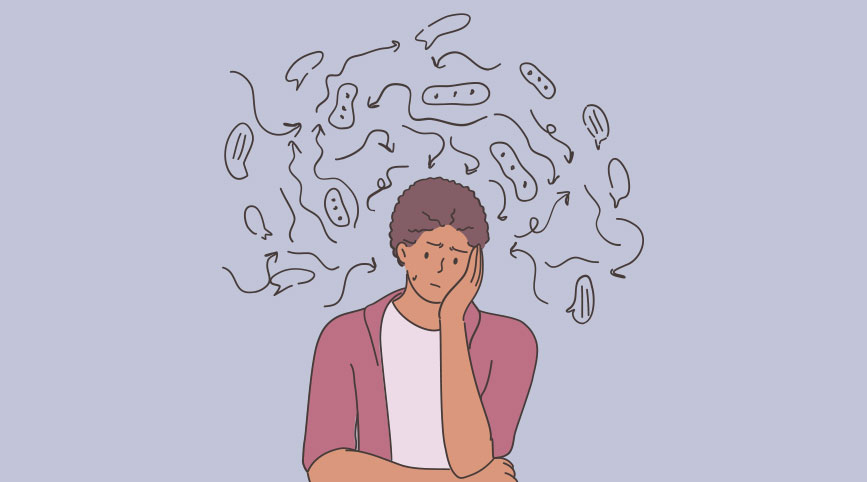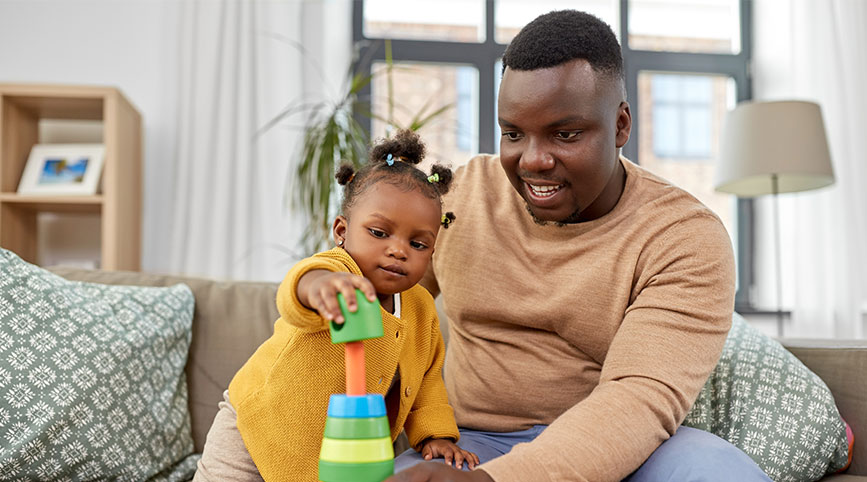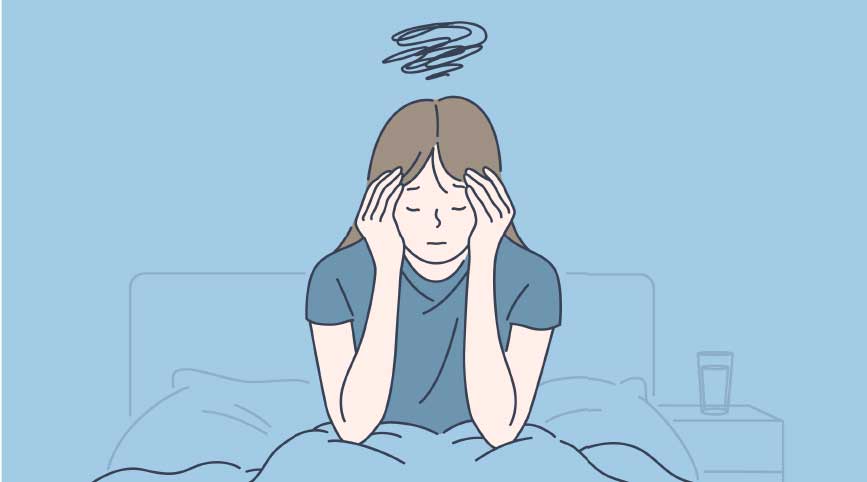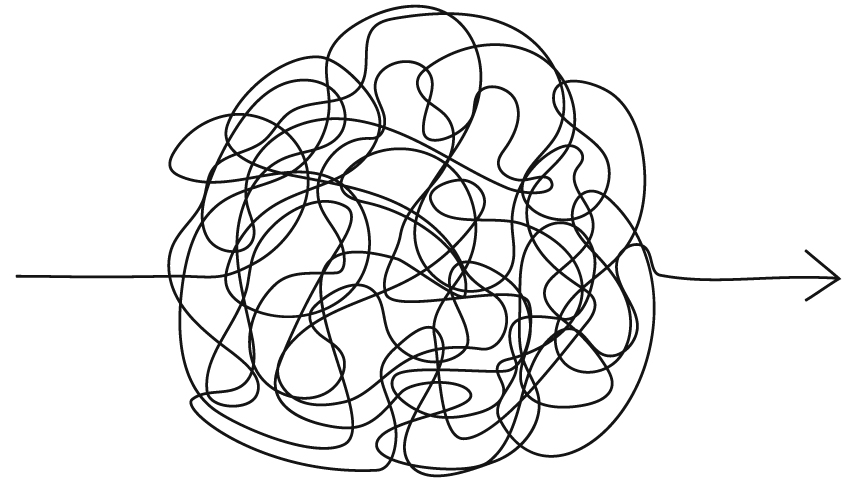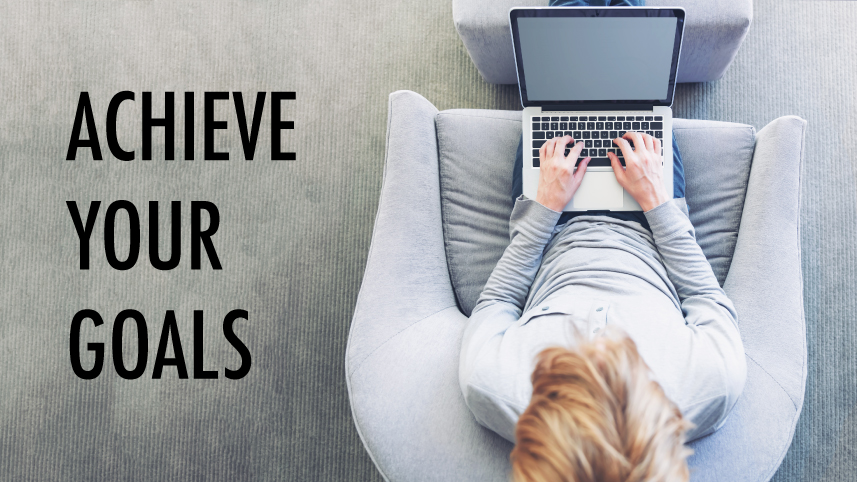About Dr. Debbie Covino
Dr. Debbie Covino, the First Lady of Cal State LA, is certified as a Master Clinical Hypnotherapist and Integrative Life Coach. She has spoken to diverse groups throughout Southern California about the importance of self-care and inner well-being, including staff, faculty, and students at Cal State LA. Dr. Covino has also taught courses in self-hypnosis for personal and professional success through the College of Professional and Global Education at Cal State LA. She is the co-founder of the Cal State LA WellBeingU initiative, which focuses on the inner well-being of the campus community.
Bad Thought: I can’t shake this depression.
A couple of recent clients have been feeling depressed despite the facts that Covid is now waning and that neither has lost work. Having recently read Caroline Williams’ book, Move!: The New Science of Body Over Mind, it occurred to me that a factor in their mood disorder could be lack of physical movement during the pandemic. While some of us purchased personal workout equipment or began online training programs during Covid, others simply sat on the couch and stewed about the state of the world. The shock to the system that has been Covid has no doubt affected our emotional health, and yet something more may be going on if you’re struggling to recover your joie de vivre two years after the onset.
Williams teaches us that the body definitely influences the mind and specifically that physical movement can lower the incidence and intensity of depression and anxiety, while it raises self-confidence and self-esteem. In “Moving Your Body Is Like a Tune-Up for Your Mind,” Kira M. Newman cites Williams, who says, “Moving is at the heart of the way we think and feel. If we stay still, our cognitive and emotional abilities become seriously compromised.” Newman tells us that running, walking, dancing, and yoga are among the forms of physical movement that tell the brain we are in a state of expansiveness, strength, and positivity.
So, I recommended that my clients begin to move their bodies more, and I hope they’ll soon be thinking, I can shake (pun intended) this depression!
You can read Newman’s brief article from Greater Good Magazine.
Bad Thought: I don’t know how to cope with Covid.
As you might well imagine, people are struggling to deal emotionally as well as practically with yet another round of Covid. Omicron has certainly set us back in our efforts to return to normal living, and many are just plain exhausted. I talk to them every day and aim to guide them toward what we might call a philosophical understanding of the situation. Are they actually evolving--learning new skills or becoming emotionally stronger--in ways that will prove helpful long after this is all over? Can they look at things from a broader perspective to see What these skills and strengths might look like? Some look at me like I must be nuts, while others appear to take in the idea with some receptivity and interest.
I’m now able to add to my advice by citing a recent study reported in Greater Good Magazine. Kira Newman summarizes research (see below for link to full article) based on a survey of 1,400 older adults living in the U.S. who report that 2 ways of orienting to difficulties are beneficial: 1) the belief that their lives have meaning and purpose; and 2) the ability to make peace with adversity through forgiveness. People who maintain a philosophical, even spiritual, outlook on Covid are less stressed, anxious, and depressed.
If you’re currently struggling emotionally in response to the pandemic, consider therapy of course, and see if you can identify new capacities for handling hard times.
Bad Thought: I feel stressed at the holidays.
You’re probably not surprised to hear that I’ve been seeing a number of clients who find the holidays stressful. For some, it’s the strain of encountering difficult relatives or running low on money, while for others it’s the extra tasks, such as shopping, baking, and event planning. And for those of us who tend to be perfectionists, holiday time can be especially daunting, particularly if we’re doing a lot of hosting.
One client, in particular--I’ll call her Jenny--came to me to work on a tendency toward perfectionism, and holiday duties had been getting her especially worked up about the details of a Christmas Eve dinner at her home. Jenny worried that all her gifts might not be liked, that her meal wouldn’t provide every possible food preference any guest could have, and that she could say the wrong thing to a critical uncle.
You might be able to relate to Jenny because you’re undoubtedly already well aware that stress increases when we believe that things need to be perfect—that everyone should get along and that plans must go smoothly. The fact is that other people often don’t behave the way we would like, and life has a habit of throwing letdowns and inconveniences our way. A parent, cousin, or friend will undoubtedly say the same annoying thing she or he always says, and there will probably be tension among certain family members. You might hit an unusual amount of traffic on the road, or the new recipe might not turn out so well. Money may run short, and you could receive a gift you don’t like and can’t exchange. In other words, the holidays will not be perfect.
It's important for us all to remember during the holidays, and throughout the year, that a willingness to allow imperfection in other people and in situations leads to greater inner peace and satisfaction. If, instead of looking for perfection, you notice all the little things that are worth appreciating, you’re sure to have a much better experience.
Bad Thought: This awful image is stuck in my head.
A client I’ll call Carmen had broken up with her boyfriend months ago but in her mind’s eye, she kept seeing the angry look he had on his face when they had their last argument. She wanted to be rid of it so she could move on emotionally from the relationship.
Carmen’s problem reminds me that we often relate to our lives in pictures: As we write meatballs on the grocery list, we envision the pasta dish steaming on the plate; the image of a white-sand beach comes to mind when we pack for Hawaii; the sight of a childhood home attends a nostalgic conversation with a sibling, and so on.
Thinking in pictures happens unconsciously; we scarcely know we’re doing it. But if we can become aware of what we’re seeing, we can deliberately adjust the image for our own benefit. This practice is a staple of neuro-linguistic programming (NLP) and is easy to practice. For example, Carmen moved the image of her angry ex off into the distance in her mind’s eye, so that it was the size of a mere postage stamp. She also changed the image from color to greyscale and caused it to fade at the edges. The now less prominent and much less disturbing image helped Carmen to think, I feel more ready to begin anew.
Is there a picture stuck in your head that you’d like to modify? Give NLP a try and see what happens!
You're reading the Bad Thoughts Blog, which maintains that feeling good is as simple as thinking a better thought. I'm Debbie Covino, hypnotherapist, coach, and creator of the Master Your Own Mind self-hypnosis audio program and the All Day Hypnosis audio courses, available at https://www.hypnotic-wellbeing.com/digital-audio-programs
Bad Thought: I’m afraid my cravings will make it impossible to quit smoking.
Many clients come to me to change a problem habit, such as smoking, nail-biting, or too much video gaming. They’d like me to hypnotize them into losing their desire for the undesired behavior. And while I certainly do take this approach, what we might call the “moving away from” strategy, I find that it’s also very helpful for clients to create ways to visualize the ideal self they prefer to be in relation to the habit.
A dieter might put a picture of himself at a lower weight on the refrigerator. A neophyte non-smoker might imagine herself showing strength by pushing a cigarette away. And a gambler in recovery might envision taking the wheel of a new car when she puts her money to better use. This practice is what we call a “moving toward” strategy, and it is a great complement to keeping in mind all the negatives of continuing a problem habit.
Utilizing both a “moving away from” and a “moving toward” approach allows you to think, I can do this!
Bad Thought: My employees don’t like me.
A recent client, Yolanda, came to me because she wanted to improve her relationships with co-workers. A small business owner, Yolanda had been struggling to connect with those who work for her. Coincidentally, the day before our session I had run across an article in Greater Good Magazine that proved helpful.
Theodore Kinni cites a series of recent studies that show that a simple inquiry about another person’s emotional feelings builds trust in that person and hence creates instant rapport.
You can read the brief piece here.
Yolanda has put this insight to great use and told me, I can’t believe how well I’m getting along with my employees.
Bad Thought: I can’t get over my anxiety because life is hard.
Judson Brewer’s recently released book, Unwinding Anxiety, demonstrates that anxiety is not a necessary reaction to life but instead a mental habit that can be changed.
Have you ever noticed that when one problem that’s caused you stress passes, your mind immediately searches for the next thing about which to worry? Your worry has carved out a neural pathway that keeps firing even when there’s little or nothing immediately wrong. You’ve simply trained yourself to worry no matter what. This reinforces the habit of anxiety which in turn causes more worry in a seemingly endless loop. Brewer says that you’ve taught yourself that anxiety has its rewards: motivation, sense of control, prevention of disaster. You can update this system such that you get rewards for inner peace. Brewer’s work will allow you to think, Anxiety is a habit I can break.
Bad Thought: I feel guilty when I take time away from my child.
I’ve worked with many parents who feel guilty when, to nurture themselves, they take time away from their kids. If that’s your dilemma, it may be reassuring for you to know that guilt (in normal people who have consciences) often occurs not because you’ve done something wrong, but because you’ve simply prioritized one value over another seemingly competing one. For example, you may insult a colleague because you value honesty and then feel guilty when you realize you weren’t kind.
You feel bad because you realize that you didn’t do right by one of these 2 values: honesty and kindness. You weren’t intending to be mean, but you felt honesty was best in the moment. With respect to the parent-child issue, you want to be a conscientious parent, but also have an aspect of your life that is your own, separate from your child. You may both want to help your child feel happy, but also want her to learn to create her own happiness. Your thoughts present in your mind as buts (i.e., I want to nurture my child, but I need time to myself; I want my child to be happy, but she needs to learn to create it for herself).
A great solution to this sort of cognitive dissonance is to mentally change but to and: I want to be honest, and I want to be kind. I want to nurture my child, and I need time to myself. This word substitution alone can relax guilt enough for you to allow yourself to satisfy both of your values. Can you be a conscientious parent and take time for yourself? Of course. Can you foster your child’s happiness and expect her to take age-appropriate responsibility for her own life? The use of and encourages you to find ways to do both.
Bad Thought: I am a mistake.
My client “Lauren” was depressed ever since she’d had a mishap at work: She’d made a statistical error on a report that called into question any number of arguments and conclusions included in the document. She and several colleagues, including two of her superiors, had to spend an entire weekend reworking the report to reflect the accurate numbers. “I feel like a total loser,” Lauren told me.
I was struck by how hard Lauren was being on herself, since anyone could have made such a simple error and because I knew Lauren to be a kind person who would never speak as harshly to a friend as she did to herself.
I was also reminded of David Burns’ work in Feeling Good: The New Mood Therapy on “cognitive distortions” (previously discussed in my April 22, 2018, April 20, 2019, May 18, 2019, and June 14, 2020 blogs). Lauren was contributing to her depression by engaging “all-or-nothing thinking,” viewing herself as a complete failure because she fell short of her self-imposed standard of perfection. Rather than deciding she simply made a mistake, Lauren thought, I am a mistake.
I had my work with Lauren cut out for me: I wanted her to see that whatever mistake she may have made or weakness in her professional skills that needed improvement, these things are not an indication of who she is as a person overall. I wanted her to think, A mistake is only one small aspect of the much larger me who is adept at many, many things and strong in many, many areas.
Bad Thought: Wine just isn’t doing it for me anymore.
I work with many clients who would like to find ways to relax without resorting to alcohol. Some have even made this their New Year’s resolution. Understandably, people need to escape from the busyness and responsibility posed by the outside world, a glass of wine or two can promote such disconnection. And while drinking in moderation may even have certain health benefits, many people drink too much and suffer negative physical, social, and even financial effects. Also, the quality of the disconnection from the outer world produced by drinking is far inferior to that achieved through natural means.
I began to recover from my anxiety when I learned how to disconnect from the outer world through meditation. I often don’t even like to call it meditation, because this word has many associations that can be off-putting, so let’s call it “going within.” Mentally escaping daily from the outside world is very easy: see my video on how to go within by playing the “What if?” game here: https://www.hypnotic-wellbeing.com/videos.
You can also get into a trance-like state by playing what I call the “ideal conversation” game in which you imagine the perfect conversation with a person you normally find difficult. Just imagine that person saying exactly what you would love to hear. You can answer back, and imagine that person responding in soothing ways, saying everything that sounds just perfect to you.
These mental games put you right into a peaceful, trance-like inner state. It feels terrific, and before you know it, you're meditating! At that point, you can let go of the questions and just enjoy the pleasant inner state you're experiencing, or you can give yourself suggestions about thoughts, feelings, and behaviors you'd like to change. This is self-hypnosis! Pretty soon, you’ll think, I don’t need wine to take a break from life.
Bad Thought: I can’t be with my loved ones this holiday season.
It’s truly a bummer that we won’t be with family this year due to coronavirus. The change in our usual routine does however present an opportunity to be creative about connecting virtually with relatives and friends. Many of us who are settling for Zoom have good ideas about creating a feeling of togetherness by opening gifts while online, partaking in the same food and drink, playing trivia games, and singing, among other activities.
One idea about dealing with this year’s context that I especially like comes from my daughter: After everyone’s been vaccinated against Covid, undoubtedly sometime mid-year 2021, all the holidays for which separation was necessary can be celebrated at one big party! It will be amusing to see people playing Secret Santa while wearing Halloween costumes and eating Easter eggs. You can create a similar scene referencing the holidays your family celebrates.
That said, I’d like to suggest that you can view this holiday season as an opportunity to bridge the gap in physical closeness by creating emotional intimacy in some meaningful way. You might, for instance, make a gift of telling each Zoom participant what you most appreciate in or admire about them. In a world of hyper-criticism, a positive word from you would be gratefully received.
After the holidays are over, you can tell yourself, It wasn’t ideal, but I was nonetheless able to connect with my loved ones in a meaningful way.
Bad Thought: I shouldn’t be struggling so much to change myself.
One of the great pleasures of being a therapist is seeing people change their lives for the better. When a client learns to speak up for herself, loses 25 pounds, or remains calm while speaking publicly, I inwardly cheer, knowing how great an achievement it is to break through a previous limitation. That said, I often find myself having to reassure clients that seeming “setbacks” in self-development are normal and even beneficial.
Making personal change rarely happens in a straight line. We become determined to improve in some area of life, have powerful insights in therapy, begin practicing being different, and all is well until--bam! --we’re right back to our old habits. At this point, we believe we’ve failed or that the therapy has, and we settle into the notion that there must be no hope. Nothing could be further from the truth: I myself experienced breakthrough anxiety at times while I was working on overcoming this problem. But each time I felt the symptoms, I learned something new about how to adjust my response to particular triggering situations, and each time I used self-hypnosis, I got better and better at maintaining a peaceful inner state no matter what was going on in the world around me.
In other words, change requires practice and new messaging sets in only with the repetition of new messaging. So, each "setback" provides feedback that informs finer and finer adjustments and is an opportunity to evolve toward mastery over the original problem. If you're experiencing some push back from your old habits of mind and behavior while aiming to make personal change, take heart and tell yourself, Gradual progress is perfect progress.
You're reading the Bad Thoughts Blog, which maintains that feeling good is as simple as thinking a better thought. I'm Debbie Covino, hypnotherapist, coach, and creator of the Master Your Own Mind self-hypnosis audio program and the All Day Hypnosis audio courses.
Bad Thought: I have no time for mindfulness.
Have you ever noticed how a million thoughts are always going through our minds? Our minds rarely slow down or go quiet. We’re always lost in thought, deciding what we’re having for lunch, ruminating about the most annoying person in our life, remembering various things we need to get done today, worrying a about the future, questioning what other people believe, and so on. We’re constantly judging and interpreting everything that goes on around us, even the small stuff: Why don’t people speak more clearly on the phone? I’ll bet so and so started the rumor about me. Tuna fish is really much healthier than chicken, etc. This is the reason people meditate, to allow the mind some rest.
You can do this, “meditate” that is, is without scheduling time and sitting alone in a room in the lotus position. The way to do this is to practice something closer to “pure perception,” that is, noticing/interacting with what you’re doing, with what’s going on around you relatively freer from the overactive mind. You can suspend the chattering voice in your head, suspend judgments and interpretations, and enjoy the same sort of benefits that you would get from traditional meditation.
In this Covid 19 context, we’ve all been do a lot of hand-washing. While dispensing the soap, sudsing up, and rinsing, instead of thinking about work, chores, bills, or other things, take your attention to what is happening with your hands: Notice the temperature of the water, how it feels on your skin, watch the bubbles form as you rub the soap around, perceive the slipperiness and the scent in the air, see the water cascading out of the faucet, see the soap running into the drain, and so on. You’re putting your mind to a different use now, one that is far more relaxing and refreshing. You can do this with dish-washing, folding laundry, cooking, etc.
You're reading the Bad Thoughts Blog, which maintains that feeling good is as simple as thinking a better thought. I'm Debbie Covino, hypnotherapist, coach, and creator of the Master Your Own Mind self-hypnosis audio program and the All Day Hypnosis audio courses, available at https://www.hypnotic-wellbeing.com/digital-audio-programs
Click here to get your free Memory Spa Audio: https://www.hypnotic-wellbeing.com
If you like this blog, please share on Facebook or Twitter above, and/or comment below.
Bad Thought: There’s something seriously wrong with my mental health.
I read this morning that rates of anxiety and depression are up four-fold since the start of the coronavirus pandemic. So, the first thing to understand if you’re one of those suffering from mental malaise is that you’re in good company. This is a very important point. When I was suffering from anxiety years ago, I looked around me at my colleagues and was convinced I was the only one. Added to the pain of the symptoms was the perception that I was unusually weak or strange or defective.
Fast forward 20+ years, and it’s very clear to me that anxiety is a commonplace occurrence. How much more so in our current medical, social, and political context. So, if you’re experiencing inner stress and strain, I have good news for you: you’re really quite ordinary! That bit of news may or may not help with your symptoms but, besides allowing you to feel a part of something bigger than yourself, it may also help you feel reassured that (in the words of psychiatrist James Gordon), “For the most part, these are not psychiatric disorders that [you] are having. These are ordinary responses to an extraordinary situation” (link to full article below).
This bit of news might just make you brave enough to talk to someone about what you’re feeling so that you can start the process of gathering a supportive community around you. I know I couldn’t have done it without that.
Wishing you well at this challenging time.
A Psychiatrist’s Tips for Calming Your Pandemic Stress - Greater Good Magazine
Bad Thought: I can’t find a ray of light during this coronavirus pandemic
We’re all enduring a terrible time in world history. Coronavirus has taken numerous lives, and we remain in the thick of the outbreak and all its related problems. You’re stuck at home, worried about your health and that of your loved ones, and the news stations are elaborating all the details of the crisis.
In this unpleasant context, I wanted to share with you a couple of brief articles from Greater Good Magazine, the Berkeley-based publication that cites and summarizes the latest research in well-being and offers practical advice for maintaining our mental health.
In "Eight Acts of Goodness Amid the COVID-19 Outbreak," we hear about the goodness of people who aim to bring a ray of light into the situation by caring for others and providing remedies for the malaise.
And in "How to Keep the Greater Good in Mind During the Coronavirus Outbreak," we are offered ways to keep our health protected and our spirits up.
During this difficult time, I am thinking of you and hoping you find a few rays of light to see you through the crisis.
Bad Thought: People Will Think I’m Stupid if I Don’t Know the Answer
I have a client who teaches at the college level, and over-prepares for class so that he won’t be without an answer to virtually any question a student might ask. Impossible, right? And yet I understand: I often did the same thing when I taught college, and felt so much anxiety to have answers when delivering a paper at a conference, I could barely function. It seems silly to me now, but it did not seem silly when I was experiencing it, and I know it doesn’t feel silly to my client. College professors are, as one theorist puts it, “the subject presumed to know,” and playing that role can lead to some distorted self-perceptions.
It would have been so much easier to simply allow myself to be human (i.e., imperfect), and therefore not knowledgeable about a great many things. I could have cited to myself the philosopher Aristotle’s observation that new knowledge is often a reminder of how much one still doesn’t know, or I could have had a sense of humor about my need to prove myself to others. I might have taught myself to be comfortable saying to a student or colleague 3 simple words: “I don’t know.” I might have cultivated more intellectual humility, otherwise described--in a recent article in an academic journal--as owning our limitations.
Intellectual humility is not only a relief, but is of benefit in other ways. A recent article in Greater Good Magazine cites a study that indicates owning our limitations enhances learning and increases open-mindedness. So, next time you’re in any situation in which you’re playing the role of “expert,” tell yourself this: Gaps in knowledge are just fine.
You're reading the Bad Thoughts Blog, which maintains that feeling good is as simple as thinking a better thought. I'm Debbie Covino, hypnotherapist, coach, and creator of the Master Your Own Mind self-hypnosis program.
Bad Thought: This is too big to accomplish
I remember about kaizen, the Japanese word for improvement, referring in the corporate environment more specifically to continuous improvement through small steps. The concept has been fleshed out more philosophically and psychologically in Robert Maurer’s 2014 book, One Small Step Can Change Your Life: The Kaizen Way. Maurer recognizes that while big goals can feel intimidating, one small step toward that goal always feels doable.
Have you ever felt overwhelmed by a big job or goal? Maybe you need to lose 50 pounds, clean out the garage, or find a new job. For me, it’s often writing projects. Let’s say I want to write a book-length account of ways to become a more positive thinker. Flashes of brilliance flow through me and I take note of all the marvelous possibilities! I’m eager to dive in and make it happen. But then comes the hitch in my thinking: That sounds daunting! A book is, after all, a huge undertaking. Then I think of kaizen, and am reminded that writing even one sentence is a step toward the book.
This thought actually prompted me to start the “Bad Thoughts Blog” you’re reading now. Here I can identify commonly experienced bad thought phenomena, and briefly elaborate each one. A single entry on its own may not be very substantial, but thought-by-thought, point-by-point, I am creating a larger work. A series of small steps, added together, becomes a full-sized accomplishment.
Next time you feel overwhelmed at the thought of a big goal, ask yourself what one small step you can take toward that goal. Then do that, and revel in the idea that you are already on your way.
You're reading the Bad Thoughts Blog, which maintains that feeling good is as simple as thinking a better thought. I'm Debbie Covino, hypnotherapist, coach, and creator of the Master Your Own Mind self-hypnosis program.
Bad Thought: What I have to say is of no value
I was at a holiday party, talking to a couple of men who are university administrators. As always seems to be the case (in that particular dynamic), the men were more interested in subjects related to their work than in whatever I had to offer. I tried to find a way in to the conversation--something that would get their attention . . .
Flash back to my childhood. I’m outside with my big brother and his buddies. I’m clowning around to be one of them, but they feel aloof. I think they see me as a nuisance. I don’t fit in, and I desperately want to. I identify with them more than with girls my own age.
Such scenes (I have a very long list) prompt the belief that what I have to say is of no value. Do you have this thought at times? It’s a killer. It’s stopped me from putting my whole self forward in too many ways to cite. It makes us all shrink up and feel small. It makes us sad and lonely.
Another way of being, another way of seeing is possible: I love listening to these guys so much. It’s fun that I get to be a part of their world, listening in, learning about their ways and views. Maybe they’re performing, in part, for me. Showing not only each other, but also the girl in tow, what they know, what they want out of life. Maybe I’m their audience. That’s a pretty important role to play!
I feel much better already.
Opportunity for change: Next time you’re in any group dynamic, professional or personal, ask yourself what role you’re playing. Are you a glue of some kind: without you, the others would be less cohesive? What would the conversation or activity be like if you were absent? How does your presence make the whole scene more functional or meaningful?
You're reading the Bad Thoughts Blog, which maintains that feeling good is as simple as thinking a better thought. I'm Debbie Covino, hypnotherapist, coach, and creator of the Master Your Own Mind self-hypnosis program.







